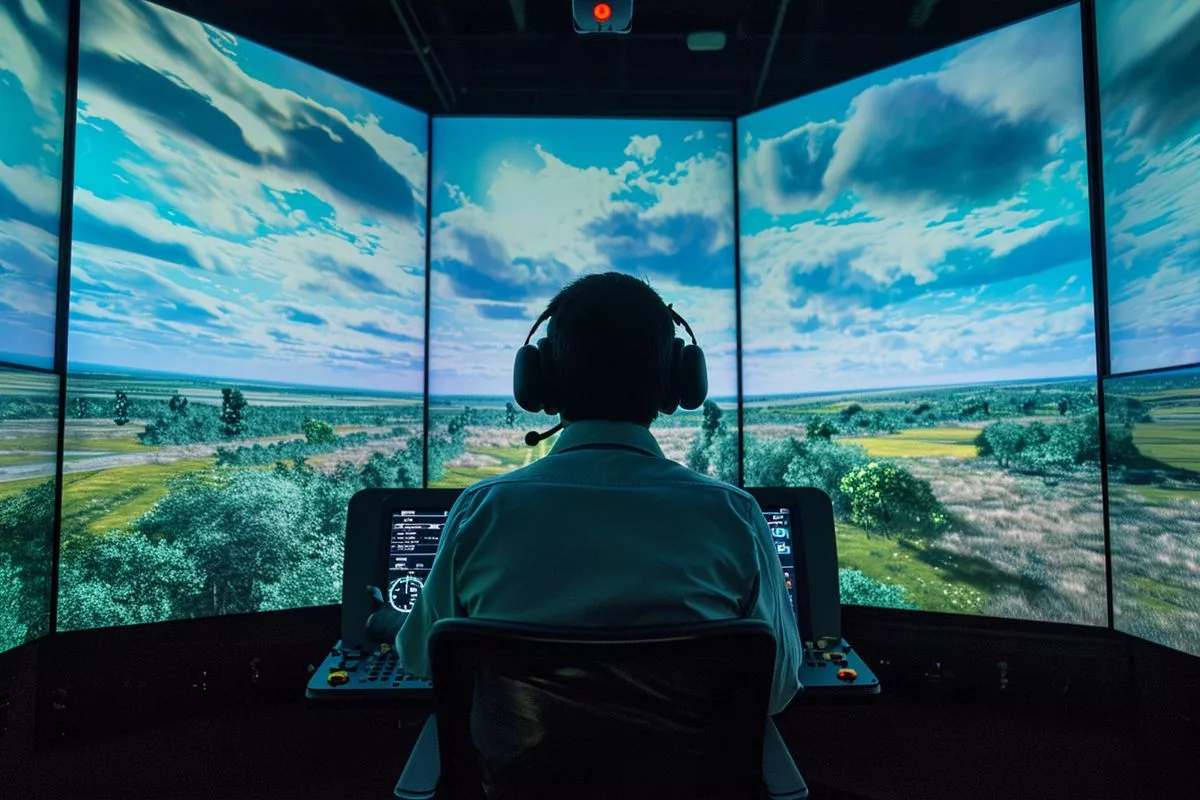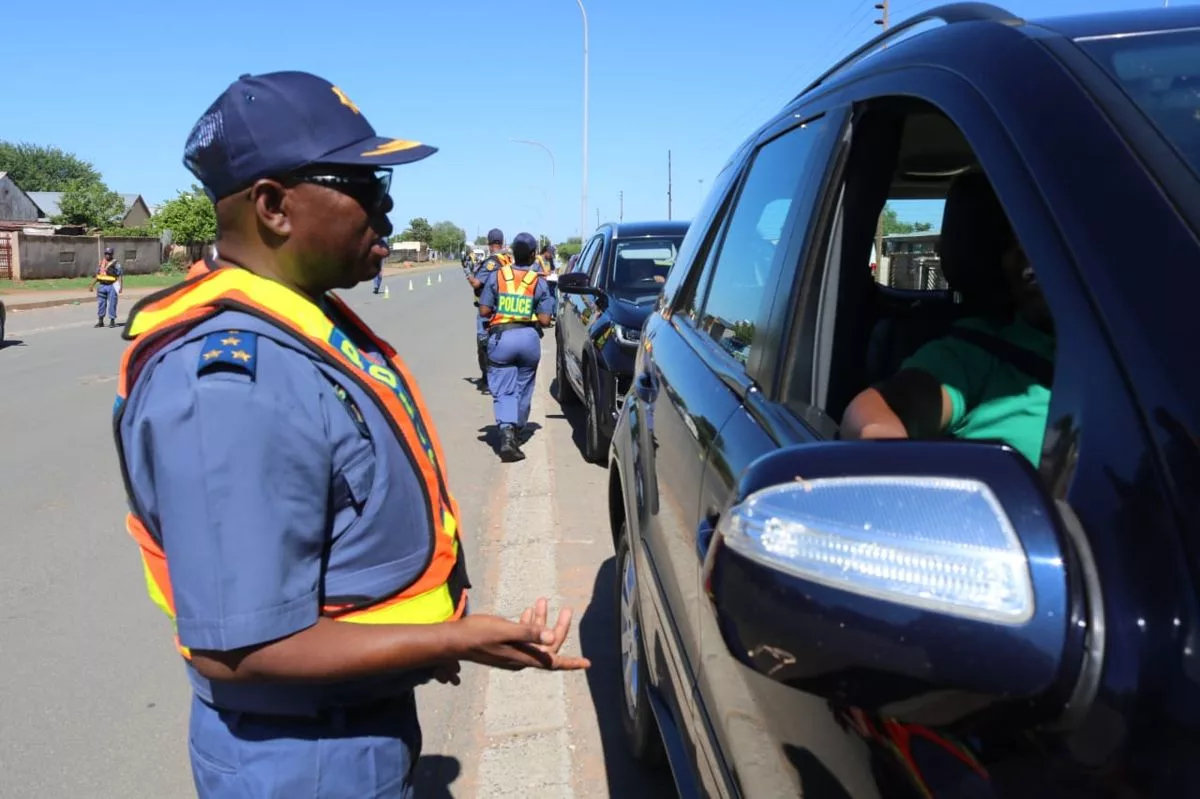The City of Johannesburg has acquired a 180-degree firearm simulator to train its enforcement services. The simulator boasts a repertoire of over 950 unique situations, allowing officers to refine their skills and enhance the decision-making process crucial in their line of duty. This innovative technology is expected to yield significant improvements in the training and performance of enforcement officers, ultimately promising a safer city for all residents.
Innovative Technology Revolutionizes Law Enforcement Training
The Advent of Cutting-Edge Training Technology
The City of Johannesburg has acquired an entirely immersive 180-degree firearm simulator to train its enforcement services. With over 950 unique situations, this avant-garde tool compels officers to interact with a plethora of components, which helps to refine their skills and enhance the decision-making process crucial in their line of duty.
Simulator Training: An Essential Tool
Simulation training has been a highly valued resource among elite policing agencies globally. The simulator holds the potential to bolster staff’s capacity to make those crucial split-second decisions, potentially preserving lives and enhancing the professionalism of the City’s enforcement agencies.
Customized Training and Cost-Effective Solutions
This revolutionary system features a comprehensive library of scenarios and enables operators to construct tailor-made situations that accurately reflect their local enforcement environment. The simulator is projected to diminish operational costs such as training ammunition expenditure.
The Advent of Cutting-Edge Training Technology
Law enforcement is witnessing a sweeping transformation, fueled by the rapid technological progression, with significant emphasis on training methodologies. Notably, the City’s training repertoire now boasts the inclusion of an entirely immersive 180-degree firearm simulator, an exemplar of cutting-edge instructional technology. Specifically tailored to expose City’s triumvirate of enforcement services to an array of high-intensity simulation environments, this avant-garde tool signifies an evolution in modern pedagogical approaches.
This immersive firearm simulator thrusts officers into the crux of action, surrounded by expansive screens that require them to maneuver through countless scenarios. With a repertoire of over 950 unique situations, this simulator compels officers to interact with a plethora of components, which helps to refine their skills and enhance the decision-making process crucial in their line of duty.
Simulator Training: An Essential Tool
Simulation training has been a highly valued resource among elite policing agencies globally. Given the potential for situations to spiral out of control within seconds, it’s crucial for officers to possess the experience necessary to judge when to employ legal force or defuse situations through alternative methods, including effective vocal commands. The pursuit of a simulator was initiated years ago, and through strict adherence to procurement protocols, the City has finally acquired one. This acquisition marks a first for sub-Saharan Africa, significantly augmenting the training resources available for the City’s personnel.
As defined in the Criminal Procedure Act (Act 51 of 1977), South African policing agencies are required to appraise a scenario before lawfully implementing lethal force. This evaluation entails determining whether an attack is imminent, unlawful, and if it’s possible to evade it without resorting to lethal force.
Undoubtedly, this responsibility is burdensome for any individual, regardless of their training level. However, the simulator holds the potential to bolster staff’s capacity to make those crucial split-second decisions, potentially preserving lives and enhancing the professionalism of the City’s enforcement agencies.
Customized Training and Cost-Effective Solutions
This revolutionary system features a comprehensive library of scenarios and enables operators to construct tailor-made situations that accurately reflect their local enforcement environment. The simulator also enhances training for novice recruits by utilizing specially adapted firearms that replicate the actual weapons issued.
The adoption of these precision-engineered firearms, in tandem with templates from basic firearms training, is projected to diminish operational costs such as training ammunition expenditure. With the inaugural simulator already functional and operator training in progress, a second simulator is anticipated to be operational within the following 12 weeks.
The comprehensive simulator solution, inclusive of two years of support from the service provider, amounts to an installation cost of R9 million. Despite this investment, the simulator is expected to yield significant improvements in the training and performance of enforcement officers. By aligning the City’s services with international standards, this cutting-edge training technology ultimately promises a safer city for all residents.
What is the City of Johannesburg’s new firearm simulator?
The City of Johannesburg has acquired an entirely immersive 180-degree firearm simulator to train its enforcement services. It features a comprehensive library of scenarios and enables operators to construct tailor-made situations that accurately reflect their local enforcement environment.
How many unique situations can the simulator offer?
The simulator boasts a repertoire of over 950 unique situations, allowing officers to refine their skills and enhance the decision-making process crucial in their line of duty.
Why is simulator training important?
Simulation training has been a highly valued resource among elite policing agencies globally. The simulator holds the potential to bolster staff’s capacity to make those crucial split-second decisions, potentially preserving lives and enhancing the professionalism of the City’s enforcement agencies.
How can the simulator help with cost-effective training?
The simulator is projected to diminish operational costs such as training ammunition expenditure. Additionally, it utilizes specially adapted firearms that replicate the actual weapons issued, reducing the need for expensive live-fire training.
How much did the simulator cost?
The comprehensive simulator solution, inclusive of two years of support from the service provider, amounts to an installation cost of R9 million.
What is the impact of the new technology on the city?
The innovative technology is expected to yield significant improvements in the training and performance of enforcement officers, ultimately promising a safer city for all residents. By aligning the City’s services with international standards, this cutting-edge training technology signifies an evolution in modern pedagogical approaches.








